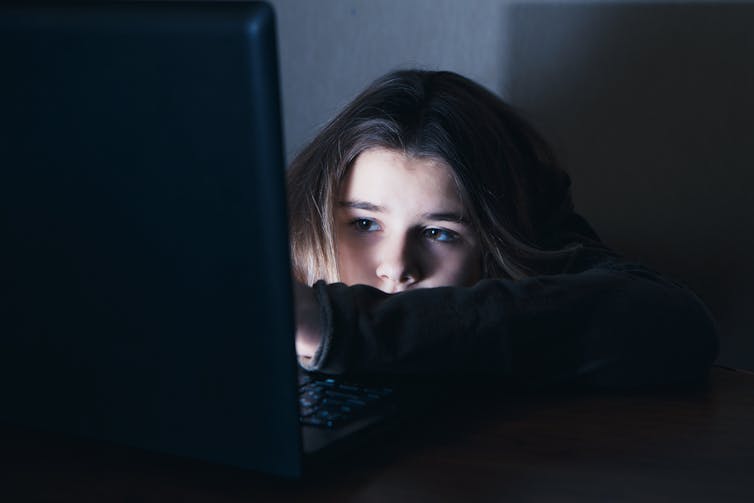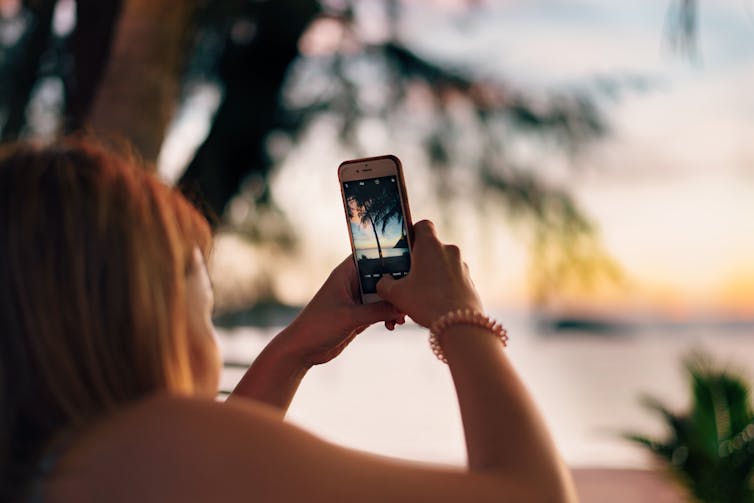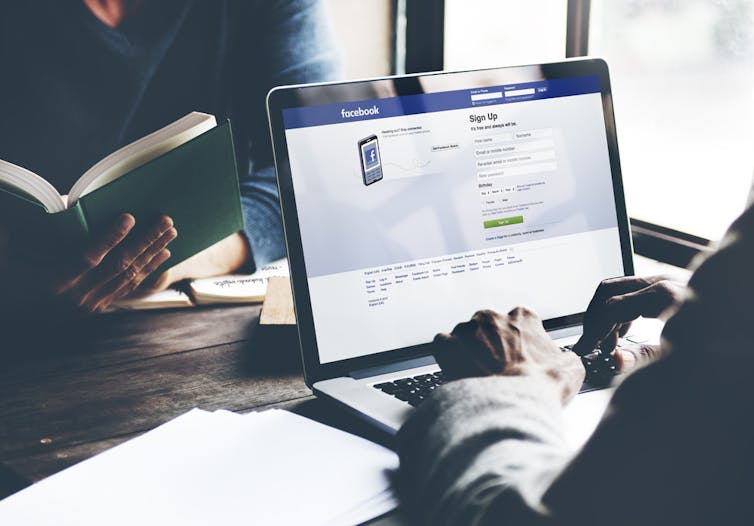Social media can be bad for youth mental health, but there are ways it can help
- Written by Jo Robinson, Senior Research Fellow, Orygen, The National Centre of Excellence in Youth Mental Health, University of Melbourne
 Studies have found scrolling through Instagram is linked with increased depression. ANDRIK LANGFIELD PETRIDES/Unsplash, CC BY-SA
Studies have found scrolling through Instagram is linked with increased depression. ANDRIK LANGFIELD PETRIDES/Unsplash, CC BY-SAYoung people spend a lot of time on social media. They’re also more susceptible to peer pressure, lowself-esteem and mental ill-health. A number of studies have found associations between increased social media use and depression, anxiety, sleep problems, eating concerns, and suicide risk.
Certain characteristics of social media may contribute to these negative effects.
Read more: Is social media to blame for the worsening mental health of teenage girls?
Cyberbullying
Cyberbullying has been linked to depression, anxiety, social isolation, and suicide. Compared to “traditional” forms of bullying, cyberbullying can be witnessed by a larger audience, the perpetrator can remain anonymous, and the victim may find it difficult to escape.
Social media platforms have taken steps to address cyberbullying (such as Facebook’s “bullying prevention hub”), and almost all social media content can be reported to site administrators. But many victims don’t seek support, and research suggests 71% of young people don’t think social media platforms do enough to prevent cyberbullying.
 Cyberbullying can be witnessed by a larger audience, the perpetrator can remain anonymous, and the victim may find it difficult to escape.from www.shutterstock.com
Cyberbullying can be witnessed by a larger audience, the perpetrator can remain anonymous, and the victim may find it difficult to escape.from www.shutterstock.comComparisons to unrealistic portrayals
A common social media activity is viewing others people’s profiles. But these frequently portray edited versions of people’s lives, such as only displaying images in which the person looks attractive or is seen enjoying themselves.
So young people may develop an impression other people’s lives are preferable to their own.
This can be made worse by the social endorsement provided by the number of “likes” a post might get. In one study, nearly one-fifth of respondents said they’d delete a post if it didn’t receive enough “likes”.
Read more: With teen mental health deteriorating over five years, there’s a likely culprit
 People post highly curated and edited versions of their life so their followers only see the good stuff.Ragnar Vorel/Unsplash, CC BY
People post highly curated and edited versions of their life so their followers only see the good stuff.Ragnar Vorel/Unsplash, CC BYSuicide and self-harm content
The potential negative impact of social media on at-risk young people is receivingincreasingattention. Risks identified include the potential for contagion or copycat events; sharing information about suicide methods; encouragement to engage in suicidal behaviour; and the normalisation of suicide-related behaviour as an acceptable coping mechanism.
Read more: To talk or not to talk? The dilemma of suicide contagion
Some benefits
There are also significant potential benefits social media can provide. It can create a sense of community, and facilitate the supportfrom friends. It can encourage people to seek help and share information and resources. More frequent social media use has been associated with improved ability to share and understand the feelings of others.
Read more – Thumbs up: Facebook might actually be good for you
The reach, cost-effectiveness, and accessibility of social media means information, support, or treatment can reach people who might not otherwise have easy access. Clinical services are beginning to harness the benefits of social media to augment the care they provide. For example, colleagues at Orygen developed an online platform for clients and their families to augment face-to-face treatment. It has been trialled with promising results.
Monitoring language used in online posts might also enable tracking and detection of people who may be at risk.
For example, Facebook recently launched “proactive detection” artificial intelligence technology that will scan all posts for patterns of suicidal thoughts, and when necessary send mental health resources to the user or their friends, or contact local first-responders.
But there are ethical implications, which include privacy and duty of care. Social media’s rapidly evolving nature, reach and anonymity make rigorous evaluation of its risks and benefits challenging.
 Does Facebook have a duty of care to its users?from www.shutterstock.com
Does Facebook have a duty of care to its users?from www.shutterstock.comChicken or egg?
Most studies examining social media and mental health aren’t able to determine whether spending more time on social media leads to depression or anxiety, or if depressed or anxious young people spend more time on social media.
But the way social media is used is important. For example, active (compared to passive) social media usecan be beneficial. Although browsing Instagram has been associated with increased depression, talking to others online increases life satisfaction.
And some individuals may be more susceptible to the negative aspects of social media than others. Research suggestspersonality traits and the level of envy felt towards others online influence whether one will be negatively impacted.
The pathways to mental illness are many and varied, and to suggest mental health problems can be attributed to social media alone would be an over-simplification. But we need to acknowledge the risks and platform administrators, parents, mental health organisations, schools and universities, and young people themselves have a role to play in minimising these risks.
It’s unlikely social media use will decrease in the near future, so we need to manage the risks and harness the potential benefits to improve the mental health of our young people.
The authors do not work for, consult, own shares in or receive funding from any company or organisation that would benefit from this article, and have disclosed no relevant affiliations beyond their academic appointment.
Authors: Jo Robinson, Senior Research Fellow, Orygen, The National Centre of Excellence in Youth Mental Health, University of Melbourne





